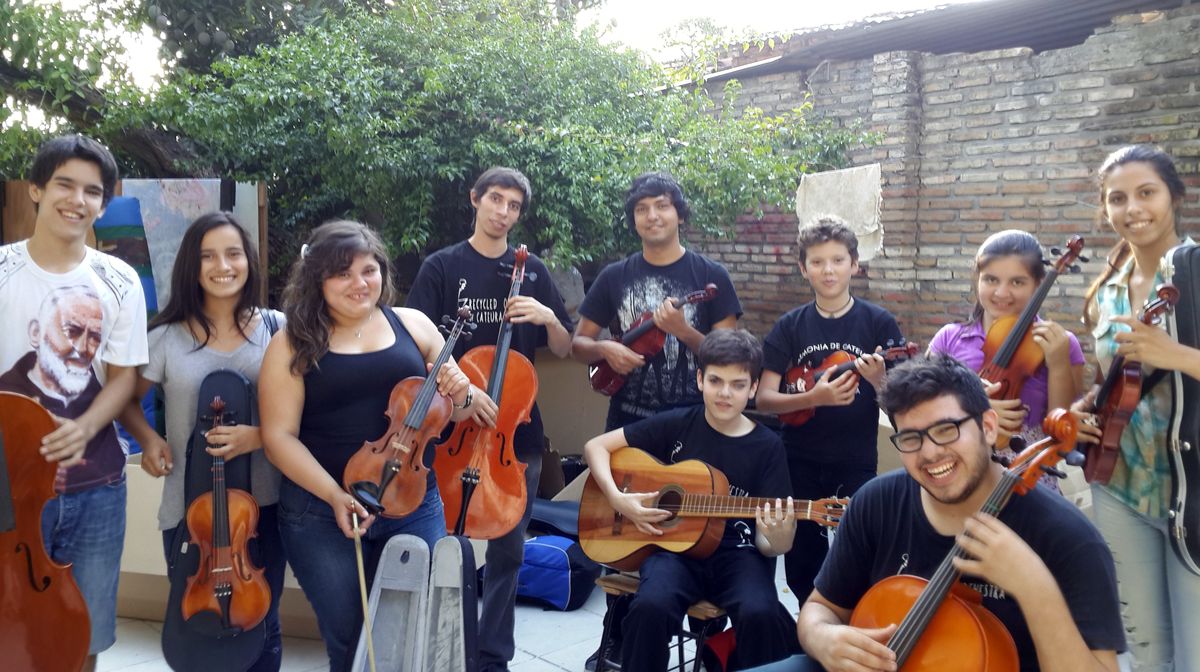This column reflects the opinion of the writer. Learn about the differences between a news story and an opinion column.
Doug Clark: Ragtag group in Paraguay receives Dutch’s instruments

One last detail before we finally heave that last spade full of earth atop 2014:
Those impoverished yet multitalented young members of Paraguay’s Recycled Orchestra finally got their much-needed instruments from Spokane.
“We (got) it,” beamed Thomas Lecourt in a December email.
“After so many months, emails and energy, I have the pleasure to let you know that the instruments you kindly donated to the Recycled Orchestra have arrived in Cateura some days ago.”
Also dubbed the “Landfill Harmonic,” the ensemble has achieved considerable fame by playing classical music on instruments made from castoff oil cans, soda bottles and other trash dug out of the dump in Cateura, Paraguay.
If you forgot about this international love story, I forgive you.
It slipped my mind and, heck, I’m the guy who broke the story.
And no wonder, given the months it took for this tale to find a conclusion.
It all began at Dutch’s, the legendary (now defunct) pawnshop and music center, in downtown Spokane.
One day in early February 2013, Dutch’s owner Gary Singer had a spirited talk with Rick Rubin about the 100-plus used and damaged instruments that were stacked up in Dutch’s labyrinthine basement.
Violins, violas, cellos …
Rubin, a gifted luthier who had worked at Dutch’s for years, told his boss about the Landfill Harmonic video he had seen on YouTube.
“These kids have managed to make music and show musicality with some ridiculously crude instruments,” said Rubin.
Equally enthused, Singer made a decision to donate his stockpiled instruments to the group, and not just because of the music.
More importantly, the Recycled Orchestra offers hopeless street youth an alternative to the snare of drugs, crime and prostitution.
Before anything could be done, however, Singer, 66, died suddenly and shockingly at home in mid-February 2013.
“Gary crosses my mind several times a week,” said Rubin, who oversaw the store’s closure in the months following Singer’s death.
“There are days when I think about Dutch’s fondly. A part of me still feels a personal ownership in it.”
Rubin made sure his boss’s dream didn’t pass away with him.
The instruments were boxed. Huppin’s TV, Audio, Cameras and More generously donated the storage space to keep them safe.
And there they, um, sat.
Rubin laughed.
“I figured shipping them off would take a month or maybe six weeks – boy, was I wrong.”
Money was the problem. Isn’t it always?
In this case, however, just $2,900 was needed to get the instruments to where they needed to go.
“The Paraguayan government couldn’t seem to come up with it,” added Rubin.
“The Paraguayan Embassy in Washington, D.C., couldn’t seem to find a sponsor.”
Finally, however, the right guy was reached in Nick Bayard.
Along with holding a master’s degree in public administration in international development from the Harvard Kennedy School of Government, Bayard is a former Peace Corps worker who served in Paraguay.
Plus, at the time Bayard was also president of the group Friends of Paraguay.
He presented the need to the 1,000 members, who responded by raising the needed funds. The crate of instruments was finally picked up – early last June.
Six months later, the philanthropic gesture that Singer made just days before he died was realized.
Many of the “instruments will arrive in the hands of kids and teenagers who couldn’t dream to have such an instrument,” Lecourt wrote in his email to Bayard and Singer’s brother, Rick.
And with every note, the legacy of a generous Spokane man plays on.
“I’m thrilled,” said Rubin. “And I know if Gary were alive, he’d be thrilled, too.”
